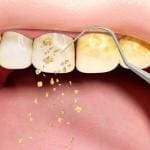Diabetes is a chronic metabolic disorder that affects millions of individuals worldwide. While it primarily affects blood sugar levels, it can also have a profound impact on oral health. Dental professionals play a crucial role in providing comprehensive care for patients with diabetes, as they need to address unique challenges and considerations. This article explores the dental considerations specific to individuals with diabetes, including the impact of the disease on oral health, complications that may arise, and strategies for effective management. By understanding these aspects, dental professionals can deliver optimal care and improve the overall well-being of patients with diabetes.
Understanding Diabetes
Diabetes is a chronic metabolic disorder characterized by high blood sugar levels (hyperglycemia) due to inadequate insulin production, impaired insulin function, or both. Insulin, a hormone produced by the pancreas, helps regulate glucose (sugar) levels in the bloodstream. In individuals with diabetes, the body’s ability to use or produce insulin is compromised, leading to elevated blood sugar levels.
Types of Diabetes
There are several types of diabetes, including:
- Type 1 Diabetes
- Type 2 Diabetes
- Gestational Diabetes
Type 1 Diabetes
This autoimmune condition occurs when the immune system mistakenly attacks and destroys the insulin-producing cells in the pancreas. People with type 1 diabetes require lifelong insulin therapy.
Type 2 Diabetes
This is the most common form of diabetes, often developing in adulthood. It is characterized by insulin resistance, where the body’s cells become less responsive to insulin. Lifestyle modifications, oral medications, and sometimes insulin injections are used to manage type 2 diabetes.
Gestational Diabetes
This type of diabetes occurs during pregnancy when hormonal changes affect insulin function. It usually resolves after childbirth but increases the risk of developing type 2 diabetes later in life.
Complications of Diabetes
When diabetes is poorly controlled, it can lead to various complications, such as cardiovascular disease, kidney disease, nerve damage (neuropathy), eye problems (retinopathy), and compromised immune function. These systemic complications can also impact oral health, making it crucial to manage blood sugar levels and provide comprehensive care for individuals with diabetes.
By understanding the different types of diabetes and their implications, dental professionals can better tailor their treatment approaches and provide appropriate support for patients with diabetes.
The Relationship Between Diabetes and Oral Health
- Impact on Periodontal Health
- Xerostomia (Dry Mouth)
Impact on Periodontal Health
Diabetes can significantly impact periodontal health, leading to an increased risk of gum disease. Elevated blood sugar levels weaken the body’s ability to combat infections, including those affecting the gums. As a result, individuals with diabetes are more prone to developing gingivitis and periodontitis, leading to gum inflammation, bleeding, and eventual tooth loss if left untreated.
Xerostomia (Dry Mouth)
Many people with diabetes experience xerostomia or dry mouth, a condition characterized by reduced saliva production. The lack of saliva increases the risk of dental caries, oral infections, and difficulty in chewing and swallowing. Furthermore, dry mouth exacerbates the already compromised oral health in diabetic individuals, requiring careful management to prevent further complications.
Complications and Challenges in Dental Treatment for Individuals with Diabetes
- Delayed Healing
- Increased Susceptibility to Infections
- Medication Considerations
Delayed Healing
Poorly controlled diabetes can lead to impaired wound healing, which can significantly impact dental treatments. Following oral surgery, extractions, or other invasive procedures, patients with diabetes may experience delayed healing and an increased risk of post-operative infections. Close monitoring, appropriate antibiotic prophylaxis, and diligent post-operative care are vital in mitigating these risks.
Increased Susceptibility to Infections
The compromised immune response in diabetes patients can make them more susceptible to oral infections. Dentists should be cautious when diagnosing and treating oral infections in these individuals to prevent the spread of infection and systemic complications. Prompt intervention, in coordination with the patient’s primary healthcare provider, may be necessary to ensure adequate control over the infection.
Medication Considerations
Diabetic patients often require multiple medications to manage their condition. Dental professionals must be aware of these medications and their potential side effects, such as altered taste perception, oral candidiasis (thrush), and drug interactions. Collaboration with the patient’s healthcare team is crucial to ensure coordinated care and minimize the risk of adverse drug reactions.
Strategies for Managing Oral Health in Individuals with Diabetes
- Comprehensive Oral Examination
- Oral Hygiene Education and Support
- Collaboration with Healthcare Providers
- Glycemic Control and Precautions
- Periodontal Care and Maintenance
- Management of Dry Mouth
- Precautions for Dental Emergencies
Comprehensive Oral Examination
A thorough examination is essential to evaluate the oral health status of individuals with diabetes. Dentists should assess periodontal health, salivary flow, and the presence of oral lesions or infections. Regular monitoring enables early detection of oral complications and facilitates timely intervention.
Oral Hygiene Education and Support
Educating patients with diabetes about proper oral hygiene practices is paramount. Dental professionals should emphasize the importance of regular brushing, flossing, and routine dental visits. Additionally, patients should be educated about the effects of diabetes on oral health and the need for optimal blood sugar control to minimize complications.
Collaboration with Healthcare Providers
Collaboration and communication with the patient’s healthcare team are critical in managing oral health effectively. Dental professionals should establish a strong network with endocrinologists, primary care physicians, and other specialists involved in the patient’s diabetes care. Regular updates and interdisciplinary consultations will ensure a comprehensive approach to the patient’s overall health and enable informed decision-making regarding dental treatments and medications.
Glycemic Control and Precautions
during Dental Procedures Maintaining stable blood sugar levels is vital for individuals with diabetes undergoing dental procedures. Dentists should schedule treatments at optimal times, considering the patient’s medication regimen and meal schedule. In cases where prolonged procedures or sedation are necessary, coordination with the patient’s healthcare provider is essential to ensure appropriate adjustments to medications and monitor glucose levels closely.
Periodontal Care and Maintenance
Given the increased risk of periodontal disease in individuals with diabetes, periodontal care should be a priority. Regular professional cleanings, scaling and root planing are crucial for managing and preventing gum disease. Dentists may also recommend antimicrobial rinses or localized antibiotic therapy as adjunctive measures to control bacterial growth and inflammation.
Management of Dry Mouth
To alleviate the symptoms of dry mouth, dental professionals can suggest various strategies to increase salivary flow. These may include drinking plenty of water, using sugar-free gums or lozenges to stimulate saliva production, and recommending saliva substitutes or prescription medications. Patients should also be advised to avoid tobacco and alcohol, as they further contribute to dry mouth.
Precautions for Dental Emergencies
Dentists should educate patients with diabetes about potential dental emergencies and how to manage them. It is crucial for individuals with diabetes to seek prompt dental care for issues such as severe toothaches, abscesses, or trauma to prevent complications. Dentists may provide specific instructions for managing blood sugar levels during emergencies and collaborate with emergency medical professionals if necessary.
Conclusion
Diabetes significantly impacts oral health, necessitating specialized dental considerations for individuals with the condition. By understanding the relationship between diabetes and oral health, recognizing potential complications, and implementing appropriate management strategies, dental professionals can provide optimal care and improve the overall well-being of patients with diabetes. Collaboration with the patient’s healthcare team, patient education, meticulous oral hygiene, and regular dental visits are key components in ensuring the successful management of oral health in individuals living with diabetes. By addressing these considerations, dental professionals can contribute to better oral and systemic health outcomes for their patients with diabetes.





